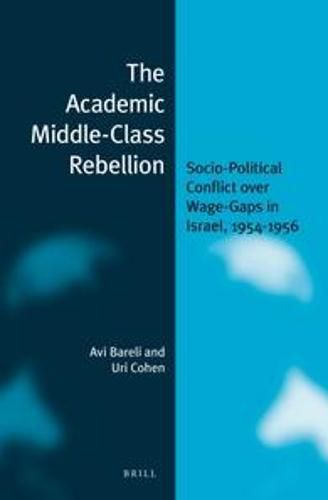Readings Newsletter
Become a Readings Member to make your shopping experience even easier.
Sign in or sign up for free!
You’re not far away from qualifying for FREE standard shipping within Australia
You’ve qualified for FREE standard shipping within Australia
The cart is loading…






This new research investigates socio-political and ethnic-cultural conflicts over wage gaps in Israel during the 1950s. The Academic Middle-Class Rebellion exposes the struggle of the Ashkenazi (European) professional elite to capitalize on its advantages during the first decade of Israeli statehood, by attempting to maximize wage gaps between themselves and the new Oriental Jewish proletariat. This struggle was met with great resistance from the government under the ruling party, Mapai, and its leader David Ben-Gurion. The clash between the two sides revealed diverse, contradictory visions of the optimal socio-economic foundation for establishing collective identity in the new nation-state. The study by Avi Bareli and Uri Cohen uncovers patterns that merged nationalism and socialism in 1950s Israel confronting a liberal and meritocratic vision.
$9.00 standard shipping within Australia
FREE standard shipping within Australia for orders over $100.00
Express & International shipping calculated at checkout
This new research investigates socio-political and ethnic-cultural conflicts over wage gaps in Israel during the 1950s. The Academic Middle-Class Rebellion exposes the struggle of the Ashkenazi (European) professional elite to capitalize on its advantages during the first decade of Israeli statehood, by attempting to maximize wage gaps between themselves and the new Oriental Jewish proletariat. This struggle was met with great resistance from the government under the ruling party, Mapai, and its leader David Ben-Gurion. The clash between the two sides revealed diverse, contradictory visions of the optimal socio-economic foundation for establishing collective identity in the new nation-state. The study by Avi Bareli and Uri Cohen uncovers patterns that merged nationalism and socialism in 1950s Israel confronting a liberal and meritocratic vision.